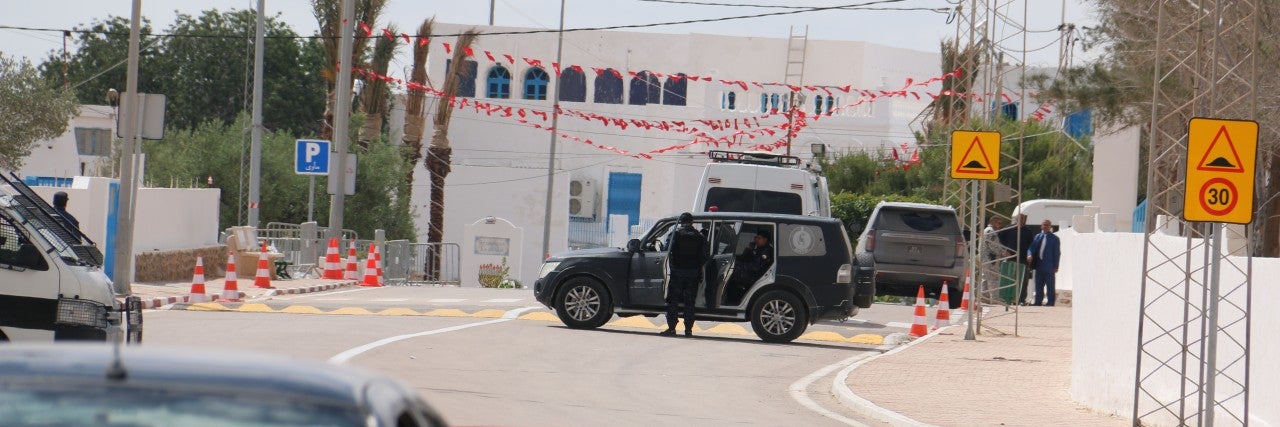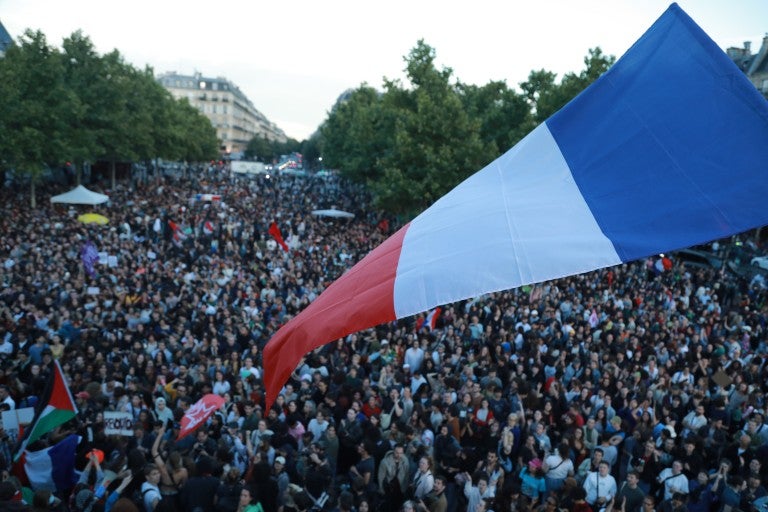May 10, 2023
Five people were killed in an attack near Tunisia’s historic El Ghriba Synagogue on the island of Djerba on Tuesday during an annual Jewish pilgrimage for the Lag BaOmer holiday.
The attack in Tunisia, which is home to one of the largest remaining Jewish communities in North Africa, comes amid heightened threats to Jewish communities worldwide and a setback for a rare instance of Jewish-Arab coexistence in an Arab country that currently has no relations with Israel.
Here is what to know about the Djerba synagogue attack and Tunisia’s Jewish community.
What we know about the Djerba synagogue shooting
The attack was carried out by a Tunisian naval guard from a naval center in the town of Aghir on Djerba. The Tunisian Interior Ministry said he first used his weapon to shoot and kill a colleague and seize his ammunition. He then headed to the El Ghriba synagogue, where he fired indiscriminately at security units near the synagogue, killing two visitors, identified as Israeli and French Jewish cousins Aviel and Benjamin Haddad, and a police officer. Security forces then shot the attacker dead. Another officer later died on Wednesday from his injuries.
The attack is still under investigation and no motive has been released.
American Jewish Committee (AJC) was horrified and saddened by the terror attack. AJC stands in solidarity with its partner organization Communauté Juive de Tunisie and the local Jewish community.
Unfortunately, this is not the first attack on the synagogue in recent decades. On April 11, 2002, a suicide bomber drove a truck loaded with gas tanks into the synagogue's outer wall. The explosion killed 19 people, including 16 German and French tourists, and injured 30.
The responsibility for the terrorist attack was claimed by a Tunisian branch of al-Qaeda. Organized by the 9/11 mastermind Khalid Sheikh Mohammed, it was al-Qaeda’s first successful international attack following 9/11. Since then, Tunisian authorities have prioritized security at the site to make it safer for pilgrims.
What is the significance of Tunisia’s El Ghriba Synagogue?
The Djerba synagogue, also known as the El Ghriba Synagogue, is located on the island of Djerba in Tunisia and is considered to be one of the oldest and one of the most significant synagogues in the world. The synagogue is believed to have been built by Jews who fled Jerusalem after the destruction of the First Temple.
The synagogue is named "El Ghriba," which means "the miraculous" in Arabic, and it is considered a holy site by Jews and Muslims alike.
The Djerba synagogue is known for its distinctive blue and white ornamentation and its elaborate interior, which features intricate tilework, chandeliers, and an ark that is said to contain one of the oldest Torah scrolls in the world.
The synagogue is the site of an annual pilgrimage, known as the Ghriba Pilgrimage, which takes place on the Jewish holiday of Lag BaOmer. The pilgrimage attracts thousands of visitors each year, both Jews and non-Jews, who come to pray, make offerings, and participate in traditional celebrations.
The Djerba synagogue is an important symbol of Tunisia's rich cultural heritage and its long history of religious tolerance and coexistence. Despite the decline of Tunisia's Jewish population in recent decades, from some 100,000 at its height to roughly 1,500 today, the synagogue remains an important spiritual center for the country's Jewish community and a popular destination for tourists from around the world.
Indeed, the Djerba synagogue is a source of pride for Tunisians, including the Tunisian Jewish diaspora, and the government. Despite the lack of relations with Israel today, the Tunisian government seeks to separate the pilgrimage from the politics surrounding the Israeli-Palestinian conflict. Owing to its important history, it is seen as a key site and tourist destination with the Tunisian government pushing for Djerba to be added to the UNESCO World Heritage List. Many senior Tunisian leaders, including the prime minister, have visited the synagogue in the past, and this year the government increased security to encourage more visitors.
What is the history of Jews in Tunisia?
Jews have been present in what is known today as Tunisia for over 2,000 years, with a possible Jewish presence during Ancient Carthage, or even earlier – dating back to the destruction of the First Temple in the 6th Century BCE.
Under Roman rule, the Jewish community in Tunisia prospered and became the largest in North Africa. However, with the arrival of Arab rule in the 7th century CE, Jews faced increasing discrimination and restrictions on their religious and economic activities.
During the 19th and early 20th centuries, Tunisia was ruled by the Ottoman Empire and then by France, and Jews gained greater legal rights and economic opportunities. However, the rise of antisemitic sentiment in Europe during the 1930s also had an impact on the Jewish community in Tunisia, which was under French control at the time.
What happened to Tunisia’s Jewish community?
In 1948, with the establishment of the State of Israel, many Tunisian Jews began to emigrate, and by the early 1960s, most of the community had left the country – for several reasons, including economic hardship, political instability following independence, antisemitism, and a desire to make Aliyah to Israel.

